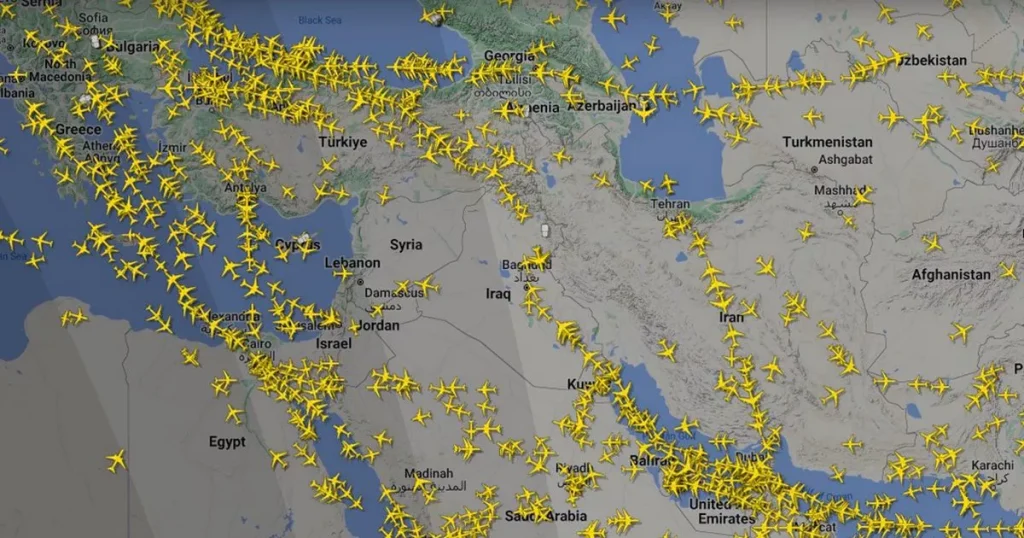The flight radar maps showed empty airspace over Iran after Israel launched ‘revenge strikes’ following Iran’s missile attacks on Israel. Flights were suspended over cities like Isfahan, where explosions were heard near the airport. A senior US official confirmed the Israeli strikes, which were said to be limited and not targeting nuclear facilities, while Iran claimed its nuclear facilities in Isfahan were secure. Iran activated air defense batteries, but the cause of the explosions remained unknown, prompting flights over several cities to be suspended.
Reports indicated that Israel’s strike on Iran was in retaliation for an earlier Israeli strike in Damascus that killed Iranian military officers. Israel’s decision to carry out a retaliatory attack on Iran was not supported by the US government, but Israel ultimately informed the US of its plans. Commercial flights began diverting their routes over western Iran without explanation, while reports suggested explosions were heard near Isfahan’s international airport. Tensions remained high in the Middle East following Iran’s missile and drone attack on Israel, with potential drone targets in Isfahan, a key city for Iran’s military and nuclear activities.
Iran’s state-aligned media confirmed the security of its nuclear facilities in Isfahan and the activation of air defense batteries in response to unconfirmed explosions near Isfahan airport. The situation escalated after Iran’s missile attack on Israel, prompting Israel’s retaliatory strikes. Israel’s decision to strike Iran in retaliation for earlier attacks in Damascus raised tensions in the region, with commercial flights altering their routes over Iran as a precaution. Despite the uncertainty surrounding the cause of the explosions, the situation highlighted the ongoing conflict and high stakes in the Middle East.
The retaliatory strikes by Israel and the subsequent suspensions of commercial flights over Iran underscored the volatile situation in the region. Israel’s decision to retaliate against Iran heightened tensions, particularly following Iran’s missile attacks on Israel. The security of Iran’s nuclear facilities in Isfahan was confirmed, but the cause of the explosions near Isfahan airport remained unknown. The US government’s reluctance to support Israel’s retaliatory actions highlighted the complexities of the situation, with commercial flights making precautionary route changes over Iran in response to the escalating conflict.
The events surrounding the retaliatory strikes in the Middle East reflected the ongoing conflict dynamics in the region. From Israel’s response to Iranian missile attacks to the activation of air defense batteries and flight suspensions in Iran, the situation highlighted the heightened tensions and risks of escalation. The uncertainty surrounding the explosions near Isfahan’s airport added to the volatility, with Iran and Israel engaged in retaliatory actions that could have far-reaching consequences. The implications of these actions on regional stability and international relations underscored the complexities of the Middle East’s geopolitical landscape.














